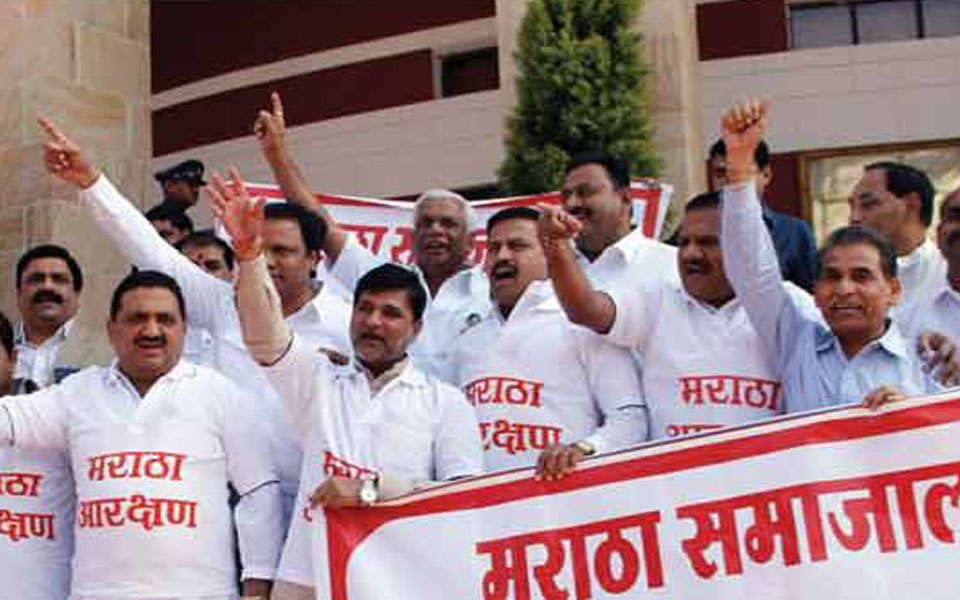Union Minister Nitin Gadkari has finally conceded the fact that youths in this country do not have jobs. Responding to the demand of reservation for Maratha community members, Gadkari said: “when there are hardly any jobs in the country, how do we offer reservation?” The question of the appropriateness of reservation to Maratha community is a point apart. But how can the logic of ‘no jobs’ hold water against having to create reservation for the people of a community? How does the government throw up the towel after having assured the youths of this country that they’d create immense job opportunities for them? Isn’t this admission of failure? Modi opened doors for liberalization of FDI immediately after he assumed power. He kept hoodwinking poor people in the name of Make in India etc.
Demonetisation ruined many businesses and damaged people’s lives irreplaceably. Forget creating jobs, a lot of existing ones never survived to tell the tale. Youths have turned jobless with rural employment initiatives falling flat after an economic blunder. But the country has managed to keep all that hidden from the people and continue to sell the dream of ‘Acche din’ to the gullible citizens through media.
Reality came to light when the Marathas took to street demanding reservation, and the government was forced to come out with facts. If the jobs have disappeared, where have the acche din of Narendra Modi arrived? Not just the Marathas, all the strong communities such as Jats, Thakurs, Patels and others have been demanding reservation. They already enjoy strong positions in socio-economic and political spaces. Statistics will reveal their share in economic and political fields is quite large. They do not need reservation for their empowerment.
Moreover, reservation is never given on the basis of size of population. Instead, it is a way of uplifting the communities socially, economically and politically, that have been exploited in many centuries. The full benefit of reservation is yet to be reaped by the communities that have received this help because it is yet to travel to the bottom level. Instead of sharpening its efficacy, there is a demand from upper caste and class people to eradicate reservation altogether. The logic for this is that real talents and hardworking people are suffering because of reservation denying them opportunities. Their intent is to deny a socially conducive space for exploited communities so that they continue to remain in the same space. Hence the powerful communities such as Patels and Jats should never be offered reservation and this democratic right should be used to uplift the lower caste people and education-deprived Muslims by empowering them educationally and politically.
Unfortunately, Gadkari has responded rather irresponsibly without understanding the whole intent of reservation. But there is a good amount of reality to his response. Everything is getting privatized these days and this has an impact on job creation too. Government jobs are reducing progressively and hence the jobs created for the weaker sections will also go for a toss with this. How would the policy on reservation benefit the people?
Gadkari’s words hold up the need to ensure reservation is made mandatory in private sector which is dominated by upper class people. Failing that, the concept would exist only as a gesture and not as a reality. Casteism is influencing private sector and proving the presence of social ladder very strongly. Continued cases of violence against Dalits and Muslims proves casteism exists strongly in this country. We have temples where the Dalit as a President of this country is treated with contempt because of his caste. How can a dalit dream of getting a job in IT and BT sectors? Union minister Gadkari has to initiate measures to extend reservation to private sector too. If this is not done, the spirit of reservation would be lost in its essence.
Let the Truth be known. If you read VB and like VB, please be a VB Supporter and Help us deliver the Truth to one and all.
Kalaburagi: Four men have been arrested in Kalaburagi on charge of hacking a man with lethal weapons and pelting stones at him under the limits of Station Bazaar Police Station recently.
According to police sources, Anand Jalak Shinde (34), Ashitosh Jalak Shinde (30), Imran Mehboob Sheikh (28) and Sohaib Anwar Qureshi have been arrested. The men are accused of the brutal murder of Syed Mehboob, a resident of Station Bazaar Upper Line Hamalawadi in the city.
An FIR was filed by the Station Bazaar Police Station based on a complaint given by Syed Ismail, father of the deceased Syed Mehboob.
Following quick probe, the police team successfully arrested the suspects within 24 hours. The arrested men were produced in court and have been sent to judicial custody.
The City Police Commissionerate has appreciated in an official release the police team’s quick solving of the murder case and arrest of the four men accused of murdering Syed Mehboob.





